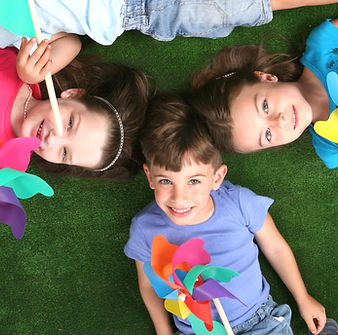ARL Child and Family
Counseling Center
PLAY THERAPY

What Is Play Therapy?
As a Registered Play Therapist, I’m trained to use play as a powerful tool for connection, emotional expression, and healing—especially with children who may not yet have the words to describe what they’re feeling.
According to the Association for Play Therapy (APT), play therapy is
“...the systematic use of a theoretical model to establish an interpersonal process wherein trained play therapists use the therapeutic powers of play to help clients prevent or resolve psychosocial difficulties and achieve optimal growth and development.”
Why Play?
Children naturally process the world through play. In play therapy, they are given a safe, accepting space to explore thoughts, emotions, and challenges using toys, games, and creative expression that are appropriate for their age and development.
Through play, children can:
-
Learn healthy coping skills
-
Work through emotional or behavioral difficulties
-
Practice communication and problem-solving
-
Build self-confidence and resilience
Play therapy is helpful for a variety of concerns, including:
-
Anxiety and depression
-
ADHD and hyperactivity
-
Autism spectrum-related challenges
-
Social skill difficulties
-
Behavioral concerns
-
Trauma or major life changes
-
Grief, loss, and family transitions
What Makes It Different?
Unlike traditional talk therapy, play therapy meets children where they are—using play as their language and toys as their words. The therapist’s role is to create a space of warmth, safety, and acceptance, where the child feels free to express without fear of judgment or punishment.
There is no blame or shame in the playroom—just the opportunity to learn, grow, and be understood.
Play therapy is appropriate for a wide range of ages. While most commonly used with children, teens and even adults can benefit from play-based techniques when words alone aren’t enough.
For children to be most successful in play therapy:
- allow the child to keep session details private
- don't offer praise or criticism about attending sessions or items that are brought home from sessions
- share any new or changing behaviors with the therapist
- schedule a consistent and reoccurring appointment no matter what the child's behavior has been like that week
- allow them to wear old clothes, as children have the opportunity to choose to use paints and other art supplies, while we try to use color safe items it is better to be safe than sorry
- please don't expect the therapist to give you details about what the child said or is doing in session, but do expect the therapist to share ways to further their growth at home
